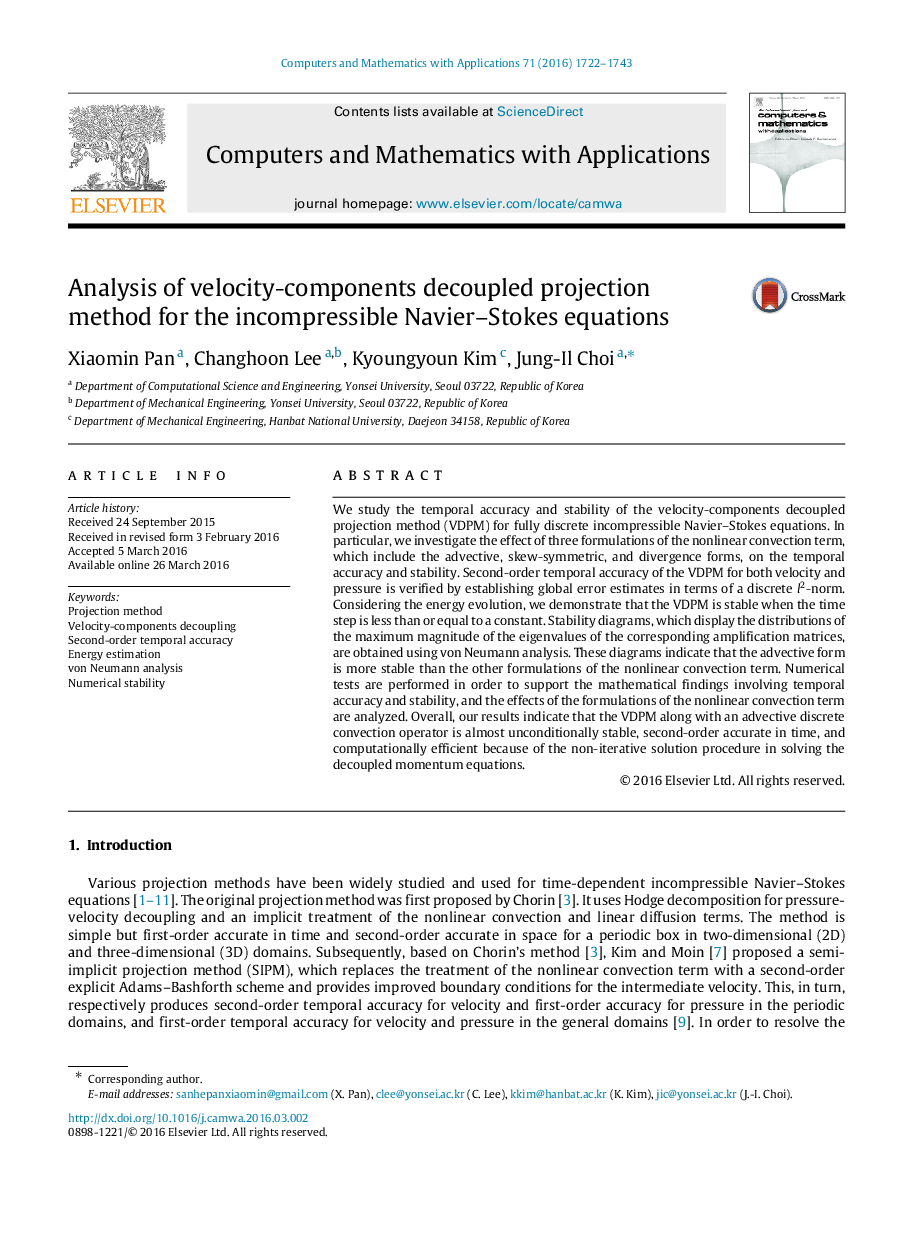| Article ID | Journal | Published Year | Pages | File Type |
|---|---|---|---|---|
| 470774 | Computers & Mathematics with Applications | 2016 | 22 Pages |
We study the temporal accuracy and stability of the velocity-components decoupled projection method (VDPM) for fully discrete incompressible Navier–Stokes equations. In particular, we investigate the effect of three formulations of the nonlinear convection term, which include the advective, skew-symmetric, and divergence forms, on the temporal accuracy and stability. Second-order temporal accuracy of the VDPM for both velocity and pressure is verified by establishing global error estimates in terms of a discrete l2l2-norm. Considering the energy evolution, we demonstrate that the VDPM is stable when the time step is less than or equal to a constant. Stability diagrams, which display the distributions of the maximum magnitude of the eigenvalues of the corresponding amplification matrices, are obtained using von Neumann analysis. These diagrams indicate that the advective form is more stable than the other formulations of the nonlinear convection term. Numerical tests are performed in order to support the mathematical findings involving temporal accuracy and stability, and the effects of the formulations of the nonlinear convection term are analyzed. Overall, our results indicate that the VDPM along with an advective discrete convection operator is almost unconditionally stable, second-order accurate in time, and computationally efficient because of the non-iterative solution procedure in solving the decoupled momentum equations.
